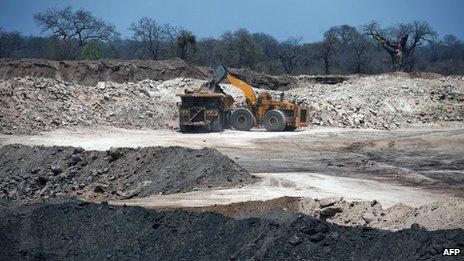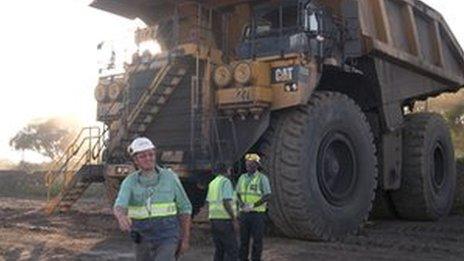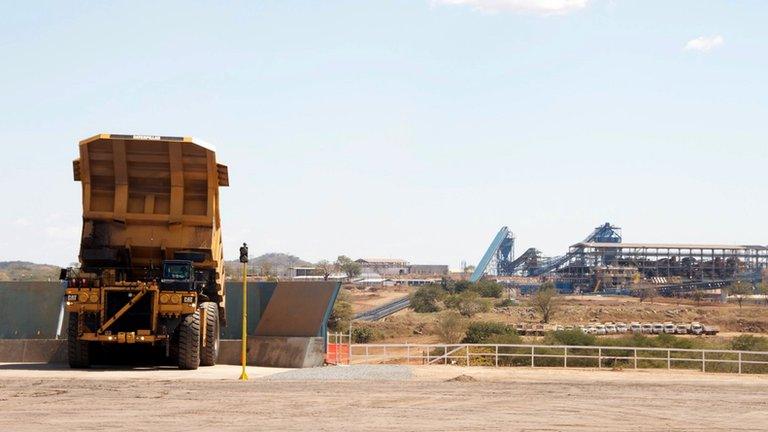Mozambique residents 'hurt by' Rio Tinto and Vale mines
- Published

In one coal-rich province, Tete, 60% of land is now earmarked for mining, leaving local people few options for resettlement
International mining companies operating in Mozambique are failing in their obligation to people displaced by coal mining, a rights group says.
Human Rights Watch says farming communities have been resettled on arid lands and have suffered food shortages.
It said mining giants, including Vale and Rio Tinto, and Mozambique's government needed to go much further to protect local people.
In response, Vale and the government said improvements were being made.
In recent years, companies including Vale, of Brazil, and Rio Tinto, of Australia, have made multi-billion-dollar investments in developing Mozambique's rich coal reserves.
Coal exports have helped create an economic boom in one of the world's poorest countries. But Human Rights Watch (HRW) says, external mining has made life harder for many local people.
'Serious disruption'
Much of HRW's report focuses on the country's north-western Tete province. With an estimated 23bn tonnes of largely untapped coal reserves, a huge project is under way to resettle local people to enable coal mining.
Mining concessions and exploration licences have already been granted covering a third of the area of the province, with pending licenses covering another third, says HRW.
It says 1,429 previously largely self-sufficient households have already been moved, but now face "serious disruption in their access to food, water and work".
With such a large proportion of land earmarked for mining, there is little good farmland left to resettle the families on, and many now live on land "far from rivers and markets".
Not enough has been done, the report says, to implement irrigation schemes and provide assistance and compensation to families as promised.
The government was also at fault, the report said, for failing to provide adequate oversight and channels to allow resettled residents to make their complaints heard.
As a result, resettled families and others affected by the mines had taken to the streets to protest about their treatment.
"The Vale and Rio Tinto projects in Tete province are just the first in many large projects and resettlements likely to take place over the next few decades in Mozambique, making the lessons they have to offer vitally important," said senior HRW researcher Nisha Varia.
'Steps taken'
Both the government and mining companies, the report says, had taken steps to ameliorate the impact of the mines, but more needed to be done.
In response, Vale welcomed the HRW report, praising the group's "problem-solving attitude" which saw it communicate extensively with the companies concerned over the issues it was uncovering.
It said it had already taken steps to compensate families fairly, ensure they did not go hungry, improve their housing conditions and improve irrigation and farming yields.
Tete governor Raxhide Gogo admitted "mistakes" had been made, but said the company was working with mining companies to correct them and that the government had already implemented new resettlement regulations.
- Published9 April 2013

- Published17 April 2013

- Published22 October 2012
.jpg)
- Published19 March 2019